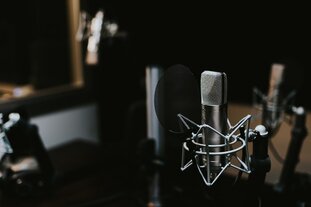How technology can help (and hurt) your music
Regardless of your genre, technology has become an integral part of daily life as a musician, and while technology can be a good thing for your music career, too much reliance on it can cause problems as well.
Guest post by Patrick McGuire of the ReverbNation Blog
Whether you make folk music or EDM, technology is now an unavoidable part of your daily life as a musician. From DAWs and sophisticated recording equipment to smartphones and computers being ever-present while we write, it’s now virtually impossible to separate technology during the music creation process.
Technology is simultaneously bringing music-makers huge benefits and harmful drawbacks. Relying too much on tech in your creation process can end up leaving you overwhelmed and uninspired. But shying away from it completely means missing opportunities for experimentation and musical development.
How relying too much on technology hurts your music
Technology makes countless aspects of songwriting, recording, and music production easier, and there’s no debate about that. But here’s the caveat. Our music isn’t necessarily better off when we lean too heavily on tech; in fact, an overreliance on technology can suck the intrigue and humanity right out of our songs.
Take the MIDI quantization feature, for example. With a simple push of a button, the technology instantly smooths out rhythm and pitch errors in your MIDI tracks. Perfect is what we strive for in music, right? Well, no actually. Robots might love perfectly symmetric notes, but your audience might not. Your capacity to be human and engaging in your music is crucial, and technology can often get in the way of your musical authenticity.
Sometimes technology dulls our music and other times it overwhelms us with choices. Each time you work in your DAW, there’s virtually an endless array of sound and production choices to consider. But instead of trying out new things, we often stick to the few instruments and effects we like.

And then there’s the ever-present temptation to over-think, over-produce, and over-sanitize our music through technology. We hear pitchy vocals, loose drums, and scratchy acoustic guitar tracks and think they are problems to be fixed. The truth is that so much of what we perceive as flaws in our music are the very things that keep our work honest and engaging. Everything from auto-tune plugins to a habit of editing each and every mistake from your tracks has the potential to remove the most interesting and engaging aspects of your songs.
How tech can help your music
Technology can dull your songs and overwhelm you. Does this mean you need to never use tools like quantize or autotune? Absolutely not. It’s not an all-or-nothing thing. Instead, it’s about finding where technology fits into your process and letting it positively shape your songs. It’s a delicate balance that you won’t find without a great deal of trial and error.
Maybe some of your MIDI synth lines should be raw and loose but others sound best quantized. Or perhaps you can edit some of the squeaks in your acoustic guitar tracks without cleaning them up completely. Delve deep into the creation and production process to see how technology best suits the overall vision and aesthetic of your work. If you do this, you’ll find it plays a greater role in some of your songs than others. You’ll learn that technology makes some aspects of your songs great and thwarts others. This process is crucial for striking a balance and getting the most out of tech.
And we can’t leave out how important technology is for musical experimentation. Effects plugins, guitar pedals, customizable synths, and drum machines are all methods for creating new and exciting music. Cutting yourself off from these creation methods means missing out on valuable opportunities for broadening your musical connection.
Like so many other aspects of music, your best approach to technology should be intentioned and balanced. Always ask “What best serves this individual song” instead of committing to a broader approach that shapes all of your music. We experiment with instruments to create music but experimentation should extend to the ways we record and produce our songs through technology. So mess with the settings on that weird new plugin and try filtering your vocals through your distortion pedal. See technology as just another method for creating and shaping your work and you’ll be able to embrace it without dealing with its drawbacks. Let your taste and intuition guide you, and your music will be improved through technology, not held back by it.
Patrick McGuire is a writer, musician, and human man. He lives nowhere in particular, creates music under the name Straight White Teeth, and has a great affinity for dogs and putting his hands in his pockets.